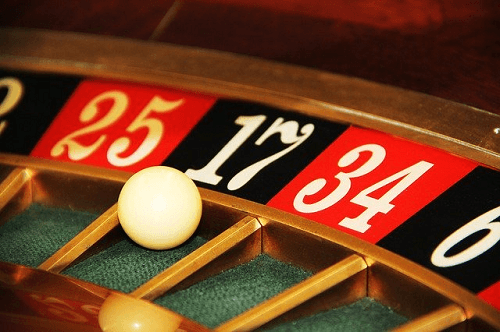How You Can Predict Roulette Numbers
You can only predict roulette numbers through approximation methods and guesses; there is no single foolproof way to predict them (unless the game is rigged).
While there is no precise method for predicting which roulette number will come up next, there are some approaches you can try in an attempt to do so. Below, we’ve outlined a few approaches that can, at the very least, enhance your understanding of roulette games.

1. Looking for the Dealer’s Signature
This approach suggests paying close attention to the spinning and dealers’ rolling patterns. If the dealer consistently spins the wheel and releases the ball in the same manner from the same spot, the ball will land in the same pocket.
However, even if there is a pattern, predicting the dealer’s future actions is impossible. Also, this method is imprecise because you cannot calculate the ball’s velocity and the speed of the wheel.
2. Identifying Wheel Biases
It’s not limited to dealers; certain roulette wheels themselves may exhibit biases, favoring or disfavoring specific numbers.
One would typically need to meticulously record the outcomes of a minimum of 1000 spins to discern such a bias in a wheel. Yet, even with this extensive data, there can still be a notable margin of error. Some will inevitably deviate from the expected probabilities in small random events, but this deviation should not be confused with bias.
While the notion of discovering a biased roulette wheel might seem enticing in theory, the practical realities of doing so in real-life casino settings render it an impractical pursuit.
3. Employing a Device
Some gamblers have resorted to using roulette computers to outsmart the game. These specialized devices meticulously monitor the ball’s speed, analyze angles, and predict its eventual landing spot.
Employing a roulette computer typically involves placing bets on multiple numbers simultaneously rather than attempting to predict a single specific number.
However, it’s essential to acknowledge that even with the aid of a computer, the capability to predict a precise number remains exceptionally unreliable.
4. Relying On the Gambler’s Fallacy
The Gambler’s Fallacy occurs when players believe that previous roulette wheel spins somehow influence the outcome of future spins. Although this is not the most reliable method, some players are still comfortable using it.
Players using this approach would, for example, believe that if the ball has landed on red several times in a row, it’s “due” to land on black. Another example is when a player observes that a specific number hasn’t come up for a while and decides to bet on it, believing it’s overdue.
However, each spin is independent, and the probability of the ball landing on an outcome is random.
5. Embracing Roulette Randomness
This approach requires nothing more than shedding any illusions of predicting outcomes. The success rating is a perfect 5 out of 5, recognizing that this table game isn’t about foreseeing which numbers will appear next. Instead, it encourages players to immerse themselves in the game’s inherent randomness fully.
By embracing roulette’s randomness, you can relax and relish the experience. All that’s needed is a predetermined budget and a stress-free approach to enjoy the game to its fullest, without any considerations of cheating.
Other Roulette Guides
- Top 5 Tips to Win Online Roulette Games
- What is The Smartest Bet in Roulette?
- What Numbers Hit Most in Roulette?
- What is the Trick to Win Roulette?
- Can Roulette be Beaten?
How to Predict Roulette Numbers – Our Final Thoughts
The quest to predict roulette numbers is a pursuit shrouded in uncertainty and the intrinsic randomness of the game. None of the methods and approaches provided here can provide a foolproof means of predicting the precise outcome of a roulette spin. Roulette, by design, thrives on chance and independence between spins, making any prediction attempt inherently unreliable.
Roulette, whether software-based online roulette, live dealer roulette online, or land-based casino roulette, is a game of chance. The only true prediction is the thrill of uncertainty.


